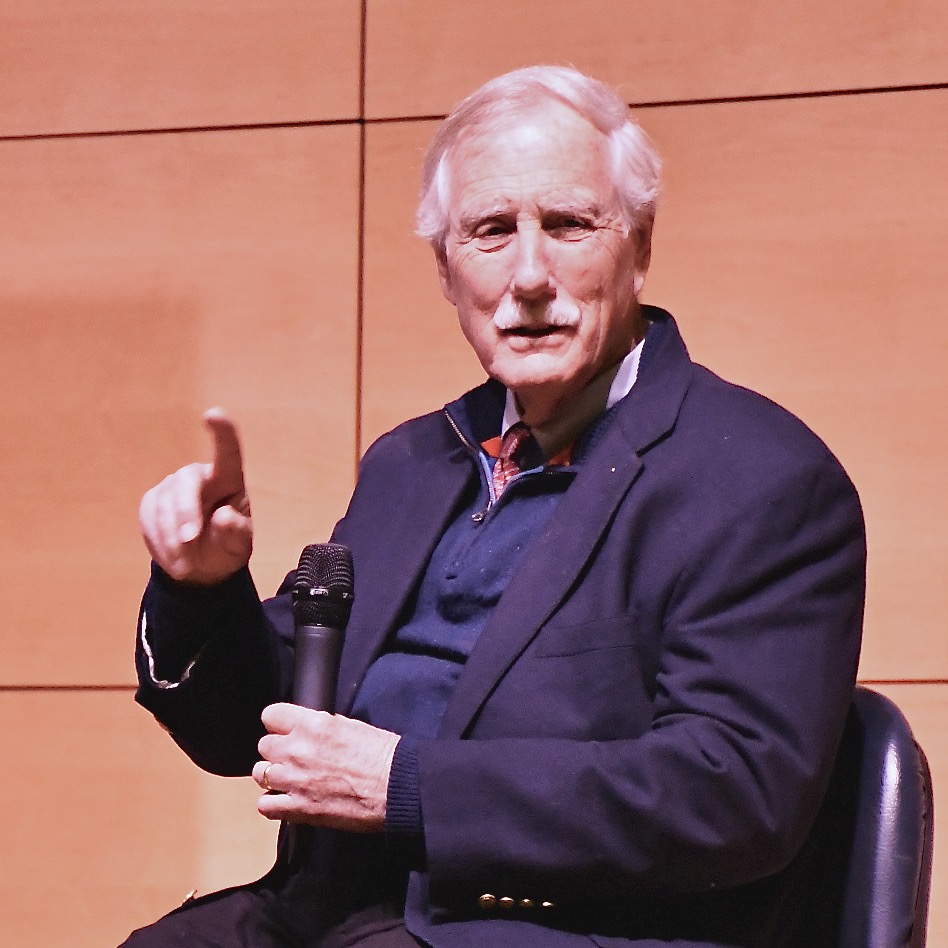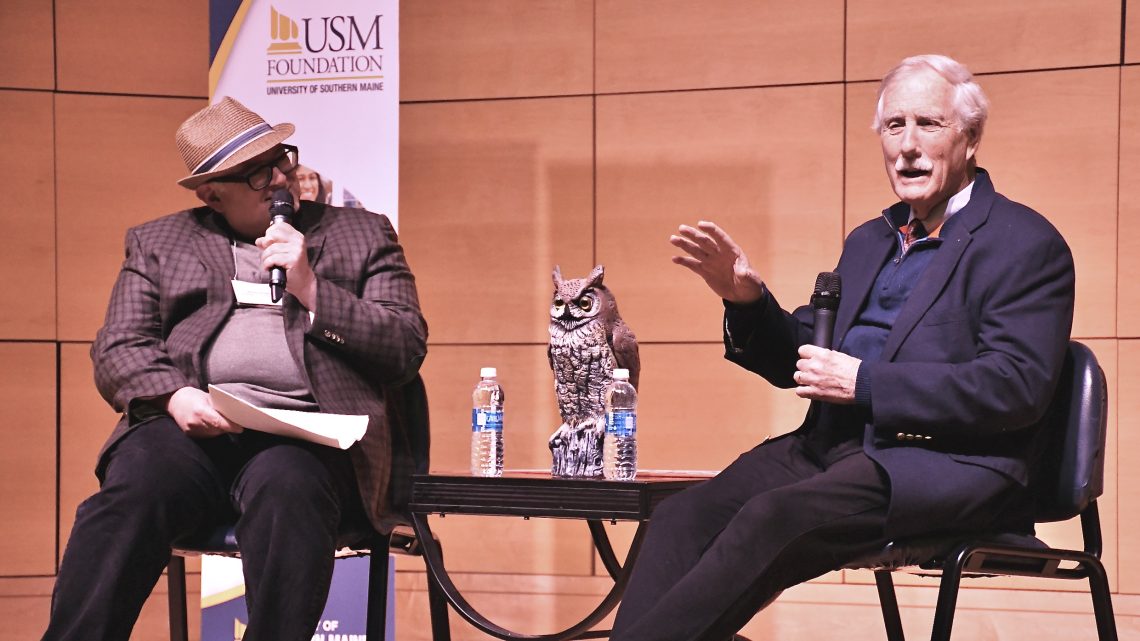U.S. Senator Angus King believes that our best leaders strive toward specific goals, resist the urge to dismiss others’ ideas and stick with solutions long enough to see them implemented.

“Too many people try to be leaders for the wrong reasons,” King recently told attendees of the annual Timothy B. Hussey Leadership Institute at the University of Southern Maine. “Often, people get into leadership positions without really knowing why they’re there, except that they want the corner office or the authority or the good parking space. If it doesn’t start with a vision or a goal, or something you want to achieve, it’s never going to work.”
King ought to know.
As Maine’s governor, elected to office in 1994 and 1998, King managed to get legislative approval for his signature school laptop program despite controversy and anger over its expense. And as one half of Maine’s delegation in the U.S. Senate since 2012, he has managed to serve as an Independent despite an increasingly divided and partisan senate.
To attendees of the Institute, King talked of patience, humility and “the wisdom of the group.”
First, get good people, he counseled. To illustrate the point, he brought a statue of an owl to the discussion. “What does the owl say?” he asked.
“Who!” answered the audience.
“You’re only going to be as good as the people you work with,” King said. When you have your team, you want all they can offer, he said.
“You have to actively encourage people to disagree and argue and take risks,” he said. “You’ve got to empower the group. You’ve got to make them feel like it’s ok to say something stupid, to come up with an idea that you have never thought of before.”
Unless people are able to express themselves honestly, the team will never be as successful as it can be, whether one is running an office or a country, King said.
It’s been a problem for Russian President Vladamir Putin, he said.
“My understanding is that people in Moscow are afraid to tell him the truth,” King said. “They didn’t tell him at the beginning of the war how resolute the Ukrainian people were or how poorly led the Russian army was. The result, of course, was a catastrophe.”
The failure of good ideas is a tragedy, he said. So is the inability to realize them.
“Execution is as important as vision,” King said. “You can have a hell of a good idea, but if it isn’t executed properly — if it’s not implemented well — it’s not going to work. I’ve experienced it as governor and I have seen it in the United State Senate. Often, politicians think they have passed their bill and their work is done. The heart of management is execution.”
During the discussion — held on the Hannaford Hall stage with Professor Richard Bilodeau, a senior lecturer of Entrepreneurship and Marketing in the School of Business — King spoke of the need for empathy for people

He talked about Maine’s Joshua Chamberlain, who led the 20th Maine during the Civil War. Six weeks before he led the Mainers through a key defense of Union forces in the Battle of Gettysburg, Chamberlain, who had served as a professor before the war, was given 100 deserters. He was told to make them soldiers or kill them.
Chamberlain treated the deserters, men from Maine, with calm kindness. He offered them food and they stuck with him.
During their defense of Little Round Top, “they made all the difference,” King said.
“People want to be listened to,” King said. “People don’t want to be talked to. They want a leader who has some inkling of what they’re going through.”
The Timothy B. Hussey Leadership Institute honors the legacy of one of Maine’s most esteemed business and community leaders. Tim Hussey was committed to the principles of servant leadership over his two decades as president and CEO of Hussey Seating Company, a 180-year-old Maine family business. Tim envisioned an institute that would engage, educate and empower the next generation of Maine leaders to change communities for the better by “doing well while doing good.”

